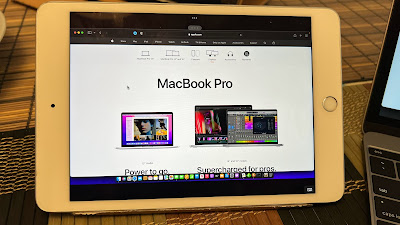At first glance, you might think that the title of this article is a clickbait considering that China is the second biggest economy in the world and Western countries have made tens if not hundreds of billions from Chinese consumers. However, this access to the Chinese market really can end overnight - either at the whim of the totalitarian government in Beijing because perceived slight by the company or another zero-COVID lockdown as the rest of the world adjust to living with the pandemic.
Like any government or organization that has grown to a size that is too big for its own good or to be able to be effective, Beijing is no different. However, it is controlled by one man at the top and has only a few individuals who get together to set policies. Control is absolute and dissent is nowhere to be seen on the surface. Mention Tibet or truthfully state that Taiwan is an independent country, you can find your company suddenly under the microscope of the state controlled media and social media that immediately called for banning the company from the company.
While a company like Apple with Tim Cook at the helm has been very good at navigating Chinese politics and kowtowing it its demands, it is inevitable that Apple will have to choose how far it will go to placate the Chinese Community Party.
To be fair, China also needs Apple. Without Apple and other Western tech companies, China's economic growth and is technical advances would be nowhere near where it is today. The benefits to all parties cannot be denied. The hope, from the perspective of the West, is that as China went from a third rate economy to one that everyone knows that eventually become the largest in the world, it would also open up its society and some form of democracy would thrive as a result. Well, that did not quite happen. If anything, China has become more closed off and other Western governments are taking cues from it.
A day of reckoning is coming. Whether this could be the result of Speaker Nancy Pelosi's trip to Taiwan or something else down the line in the South China Sea. The question for Apple, other companies, and the West is that before any flashpoint, do companies like Apple time left to decouple from China as it is no longer the low hanging fruit that it is?
Even before the supply chain disruption based by COVID and China's zero-COVID policy, Apple with its partners has begun to trying to ship manufacturing away from China for years. And just as it has taken decades for Apple to develop its supply chain in China, it may take just as long for Apple to do the same elsewhere so that if anything happens in China that is worse than what Apple experience with the COVID disruption, the effect would be mitigated.
If there is going to be pain beyond the ones caused by COVID, that will slowly go away as Apple's supply chain in India, Brazil, Vietnam, and even the US matures.
The more important question is Apple's access to the Chinese market and what happens if Apple loses it completely one day. It can happen over time as Chinese nationalist sentiments become even more extreme than it is today and kick out Western companies or make unreasonable demands that even Apple cannot accept. This is the most likely scenario for Apple to leave. War between China and the United States is another.
For Apple, it makes sense to spend additional resources and pay more attention to markets outside of China. Doing this would make sense for any company. However, it is even more important for Apple because China has been its profit and revenue growth engine for more than a decade. To replace that is paramount for Apple.
Apple's total revenue in 2021 was $365.8 billion. China came in at $68.3 billion. It is probably going to be the same for 2022 given the economic and political challenges. It is unlikely that 2023 and the foreseeable years will be any different. Apple's growth will have to come in forms of new products and services and working harder in regions where I think it is underperforming.
The key question is what to do if that $70 billion a year from China suddenly disappear. While Apple or anyone else for that matter will not publicly suggest that will happen out of fear of angering China, it has to be something that keeps Tim Cook up at night. How do you replace 20% of your revenue?
You cannot do that just like that. However, in the short term, Apple will try to diminish the size of that China's contribution to its bottomline.
- Double down growing the size of its services revenue. Apple services generated nearly $20 billion in the latest quarter and it will hit $100 billion annually. Getting it to $150 billion if service revenues continue to grow at a steady pace will help a lot. Wall Street seems to suggest that China will stagnate in the coming years.
- New products. Apple Watch has done well and as Apple's focus on health for the wearables continue to improve the watch, greater number of upgrades and new users will pick it up. New products will still be needed. Augmented reality is going to be big bet for Apple.
- While promising, Apple's future may well be its auto ambition. We have not seen a new car from Apple or anything like that but Apple's latest CarPlay "play" from its World Wide Developer Conference this June has folks very excited. No one knows for sure if Apple is making any money from auto makers that have incorporated CarPlay into their vehicles. Some suggests that Apple charges manufacturer no cost to incorporate CarPlay. If that is the case, Apple is using it as a halo effect for its other products and services. Apple will eventually release its own car. That alone can generate tens of billions in additional revenue that alone rivals the size of Apple's China revenue. The global vehicle revenue is projected to be nearly $4 trillion. Telsa's 2021 revenue is $54 billion. Volkswagen and Toyota generated $254 billion and $250 billion respectively. Ford came in at $127 billion and GM generated $123 billion. If Apple takes only 1% of the global auto market, that means $40 billion of additional revenue. A more apt comparison for Apple is Porsche which is doing quite well with only $35 billion in 2021.



